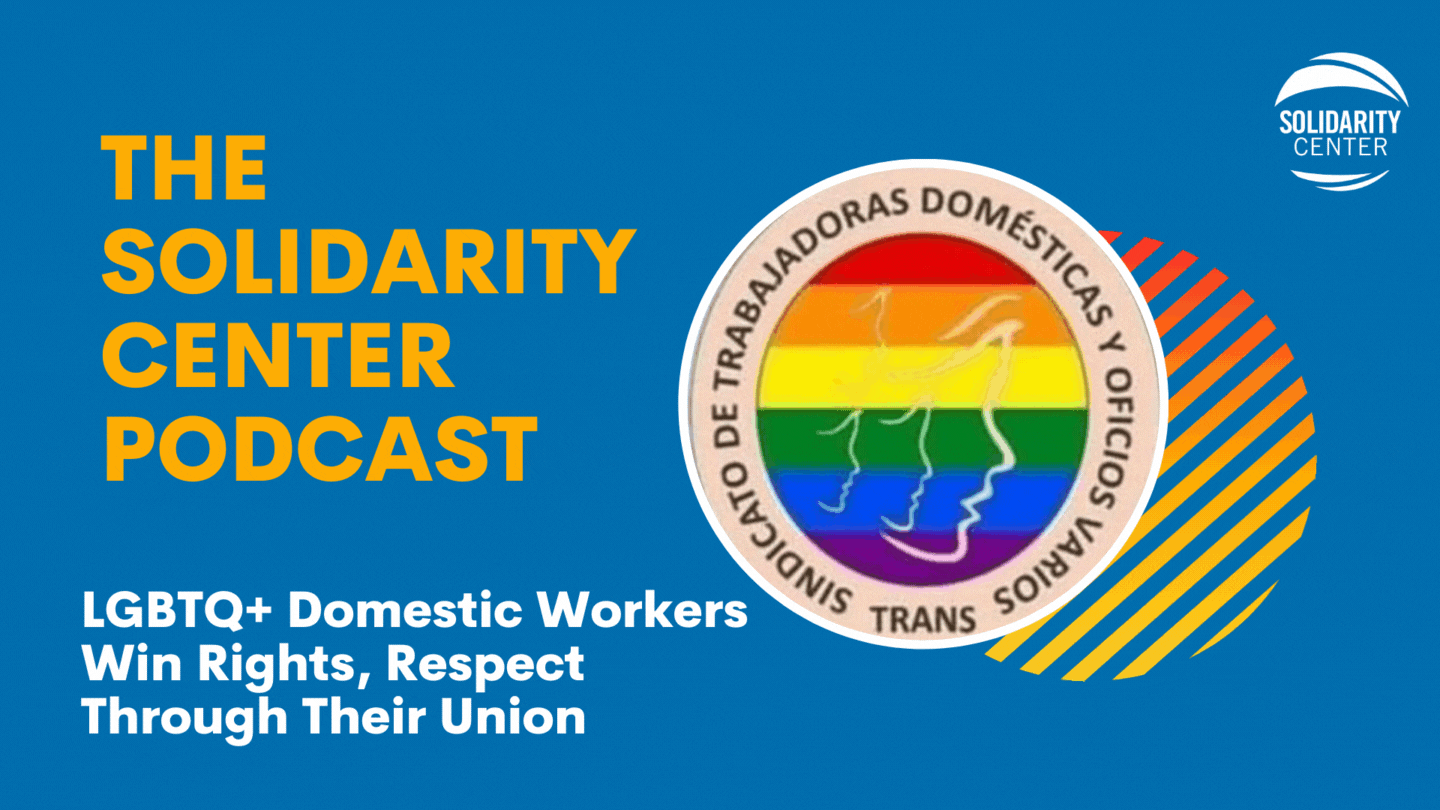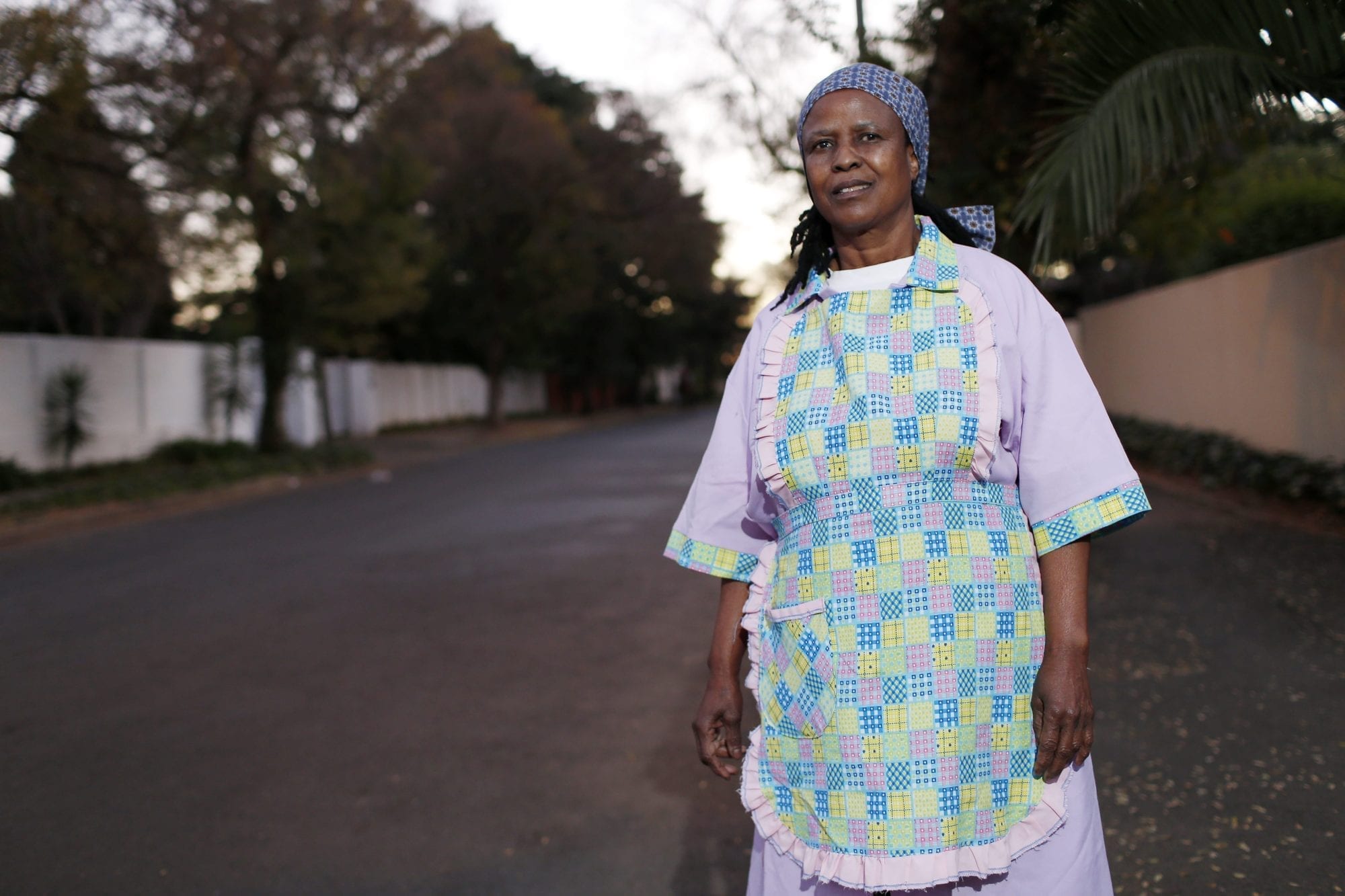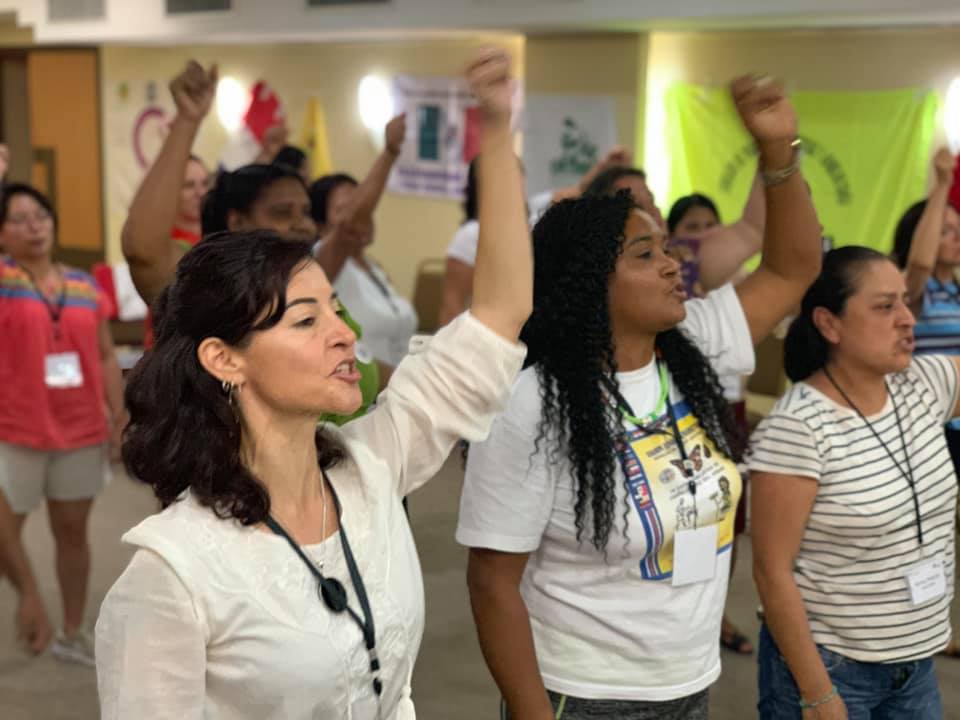As a trans domestic worker from Nicaragua working in Guatemala, Francia Blanco says her experiences with verbal and physical abuse, discrimination, and forced labor conditions led her to take action to build a world where trans domestic workers had rights, respect and...
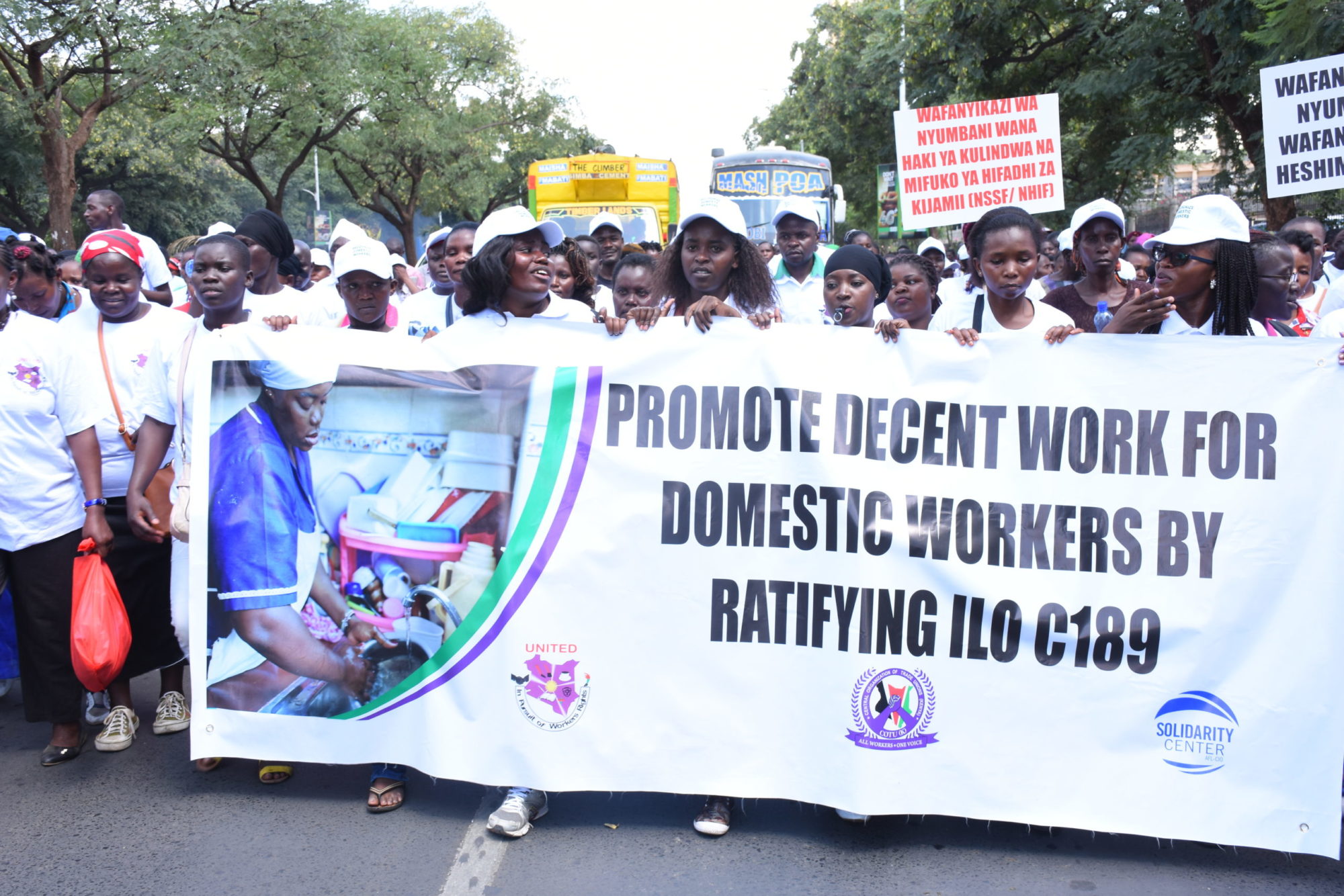
The Solidarity Center joins with unions in Kenya and around the world in championing ratification of the ILO global treaty Convention 189 covering domestic worker rights. Credit: KUDHEIHA
Millions of domestic workers are employed in countries where they are excluded from national labor laws, including limits to working hours, minimum wage and overtime pay. Domestic workers, who are predominantly women and sometimes children, toil invisibly in private homes. Some live on their employer’s premises where, away from the public eye, they often are subject to abuse. Nearly one in five domestic workers are international migrants.
The Solidarity Center supports unions around the world as they assist domestic workers in gaining their rights on the job such as in Honduras and Ukraine, where workers formed the first domestic workers union in their countries with the assistance of Solidarity Center partners.
Together with the International Domestic Workers Federation (IDWF) and the U.S.-based National Domestic Workers Alliance, the Solidarity Center supports leadership, gender equality and rights-based training for domestic workers to strengthen their ability to advocate for improved wages and working conditions.
Many domestic workers migrate for jobs to the Gulf countries and the Middle East, and the Solidarity Center works to advance their rights with union partners in origin and destination countries, such as the Kuwait Trade Union Federation (KTUF), which launched a migrant worker office that assists domestic workers and other migrant workers experiencing wage theft and other forms of exploitation.
The Solidarity Center, which joined with unions and rights organizations in championing passage of the 2011 International Labor Organization’s global treaty (Convention 189) covering domestic worker rights, assists unions in pushing for adoption of the treaty in their countries to ensure domestic work is legally recognized and valued. The Solidarity Center also supports domestic worker unions achieve labor rights in countries such as Mexico, where union partners won the right to written contracts and a ban on employing workers younger than age 15.
Health and Safety: South African Domestic Workers No Longer Invisible
In an historic judgment, the South African Constitutional Court in mid-November recognized that injury and illness arising from work as a domestic worker in a private home is no different to that occurring in other workplaces and equally deserving of compensation....
Domestic Workers Left out in the Cold
Domestic workers—at great risk during the pandemic crisis—are mobilizing to secure rapid relief and protection says the International Domestic Workers Federation (IDWF). This International Domestic Workers Day, more than 60 million of the world’s estimated 67 million...
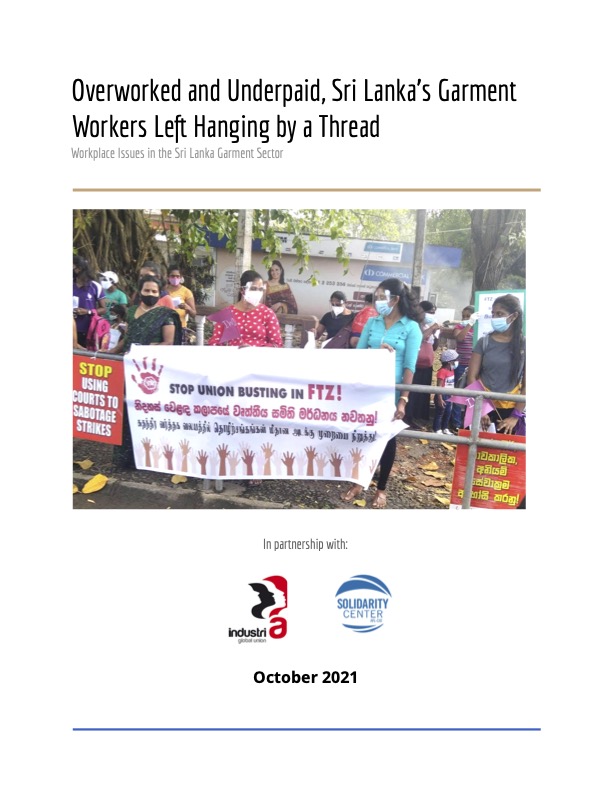
Overworked and Underpaid, Sri Lanka’s Garment Workers Left Hanging by a Thread
A survey of garment workers in Sri Lanka, conducted in partnership with Solidarity Center and IndustriALL, found employer opposition and harassment has limited their ability to form unions and address workplace rights violations such as increased workloads and work...
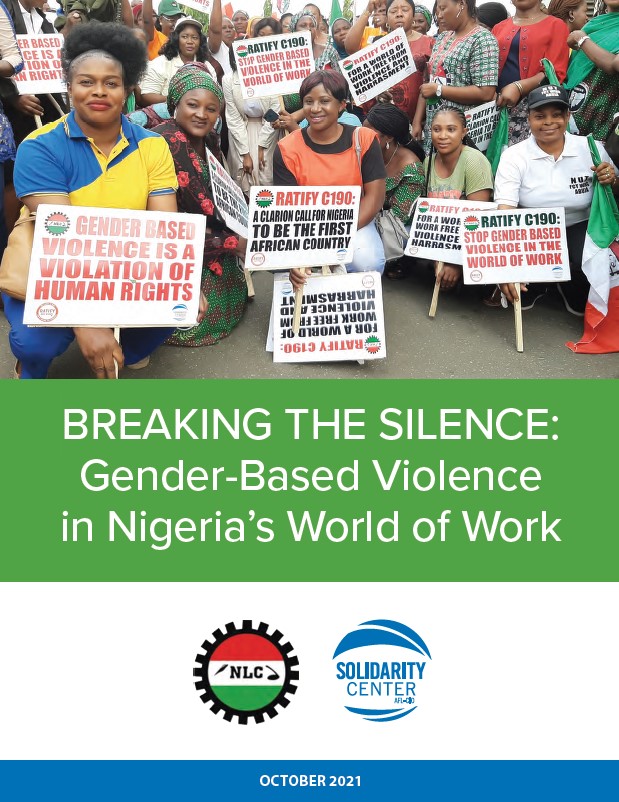
Breaking the Silence: Gender-Based Violence in Nigeria’s World of Work
An alarming 57.5 percent of women workers interviewed across all sectors for this Nigeria Labor Congress (NLC) report say they experienced gender-based violence and harassment (GBVH) in the world of work. More than one-third of respondents said that even when...
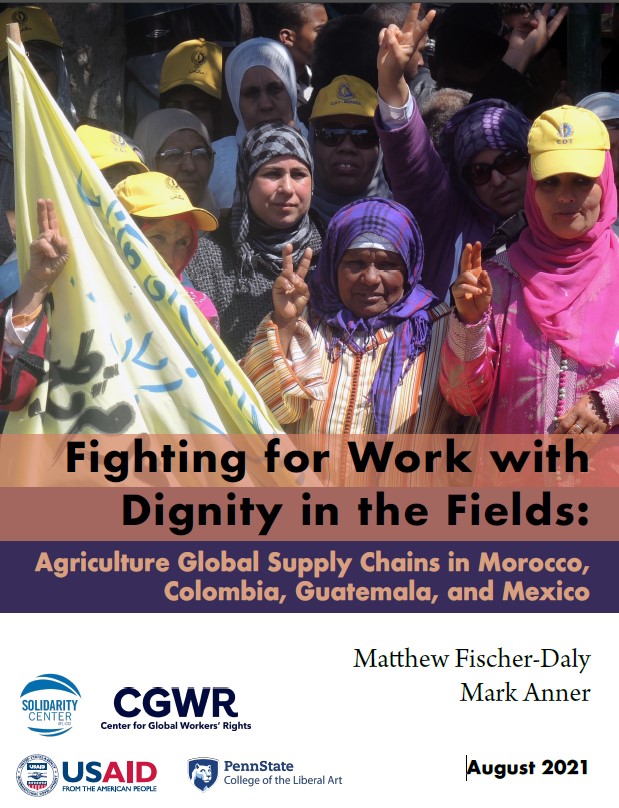
Fighting for Work with Dignity in the Fields: Agriculture Global Supply Chains in Morocco, Colombia, Guatemala and Mexico
Where unions establish collective bargaining, they initiate the strongest mechanism for protecting agricultural workers’ rights, health and dignity. Through analysis of five agribusiness sectors—including palm oil in Colombia, bananas in Guatemala, strawberries in...
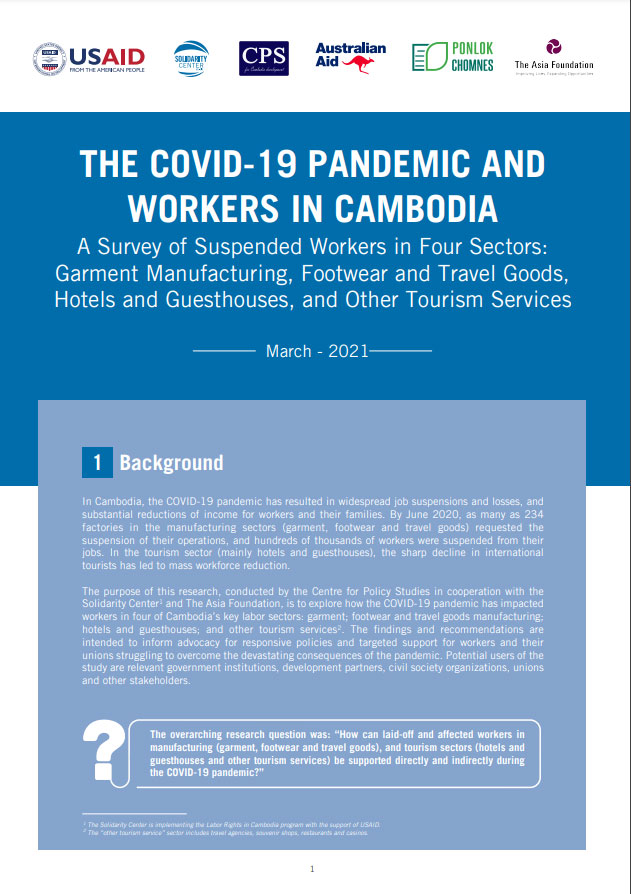
THE COVID-19 PANDEMIC AND WORKERS IN CAMBODIA
As a new wave of COVID-19 hits Cambodia, a new study recommends urgent action to ensure garment and tourism workers workers do not experience widespread loss of jobs and wages as they did in 2020. The Center for Policy Studies survey is supported by Solidarity Center...
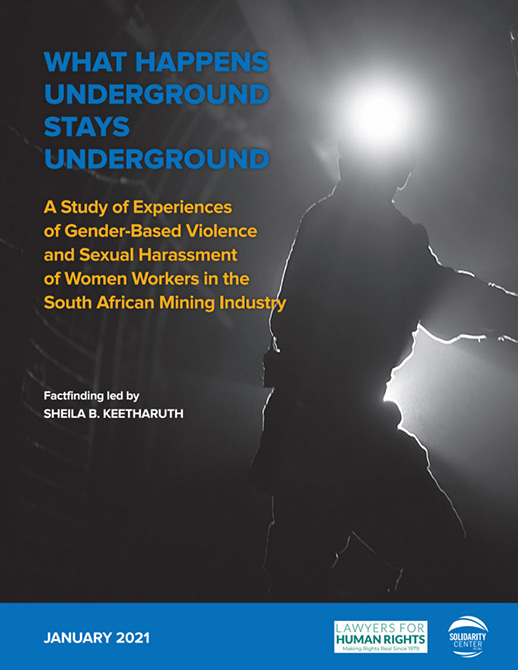
What Happens Underground Stays Underground
Women working in South Africa's mining sector report being subject to sexual and gender-based violence and harassment, inside mines and within the mining communities where they live and efforts to redress such abuse must address the nature of the workplace and...
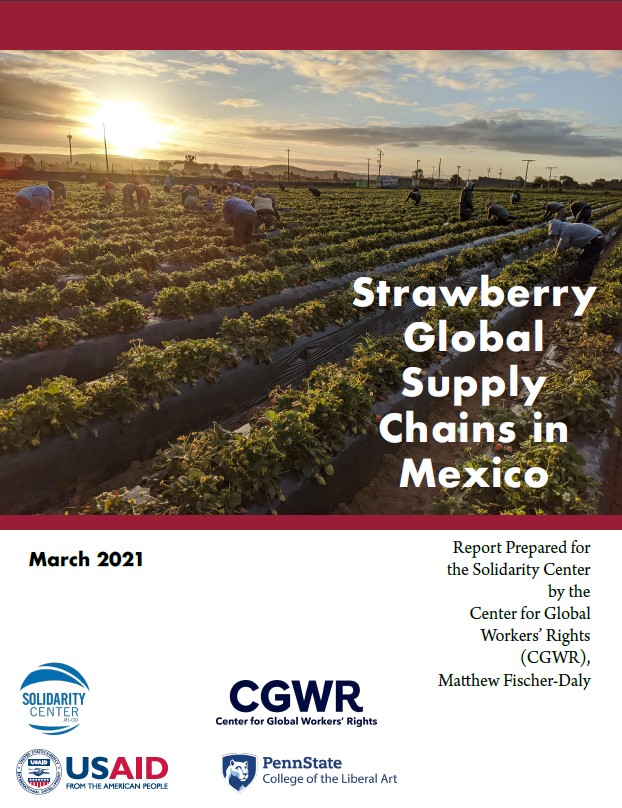
Strawberry Global Supply Chains in Mexico
The governments of Mexico and the United States have supported the growth of the Mexican berry sector by creating conditions for a cheap supply of labor and profit growth. Mexican field workers receive an estimated 12 cents per pound of strawberries sold in U.S....

